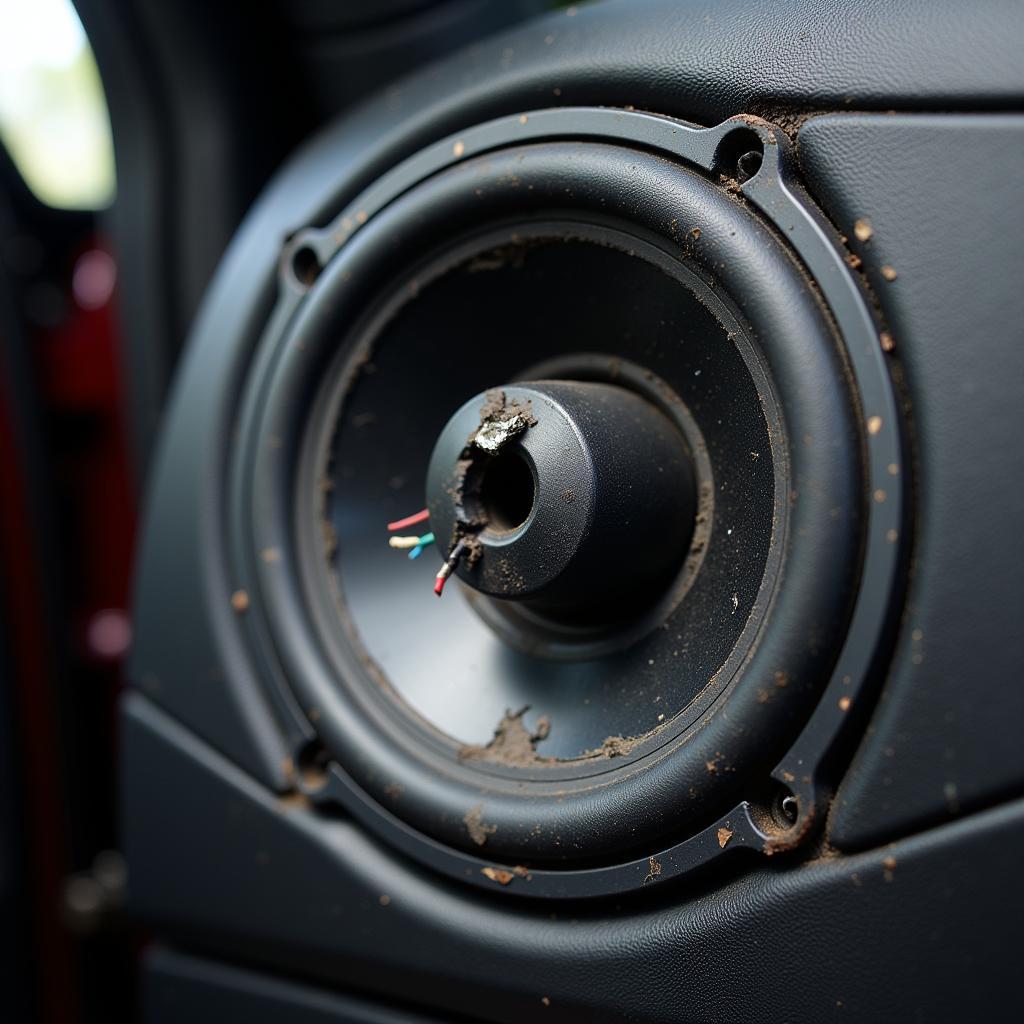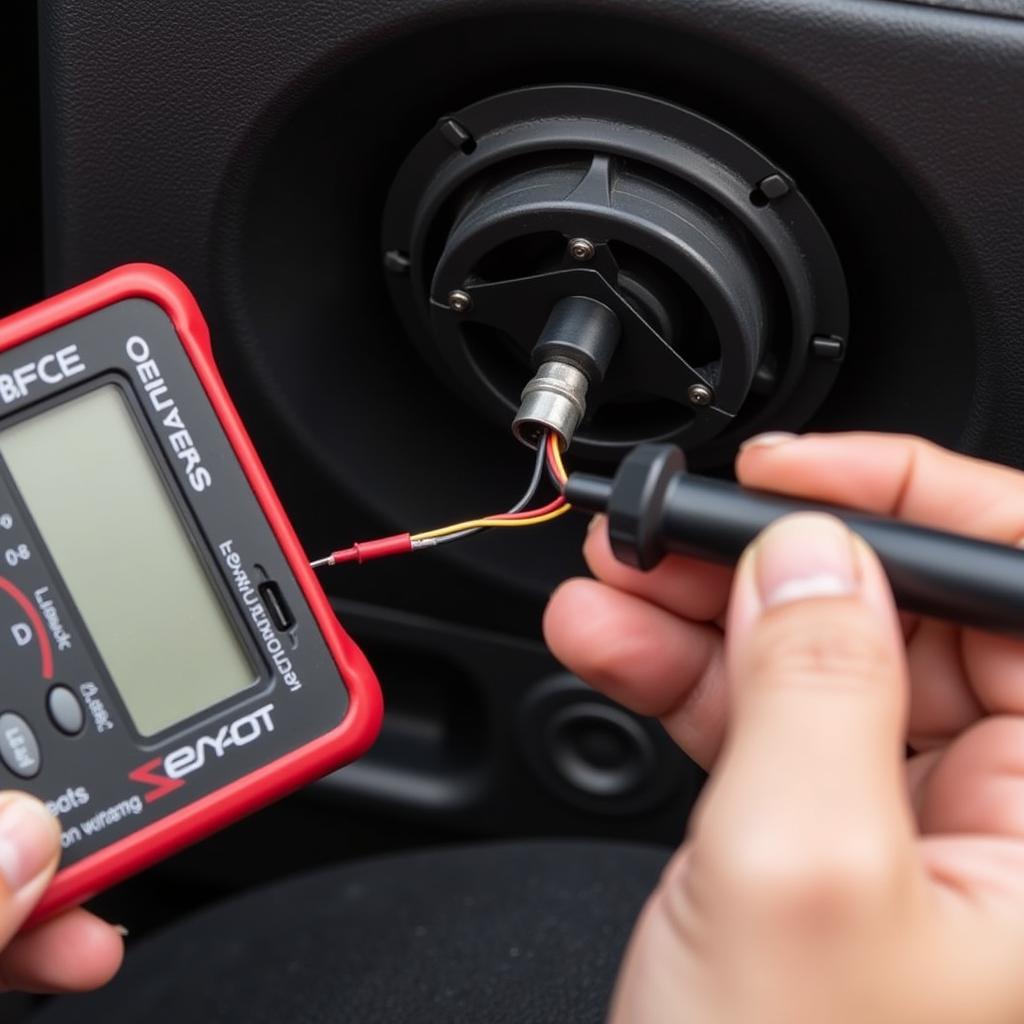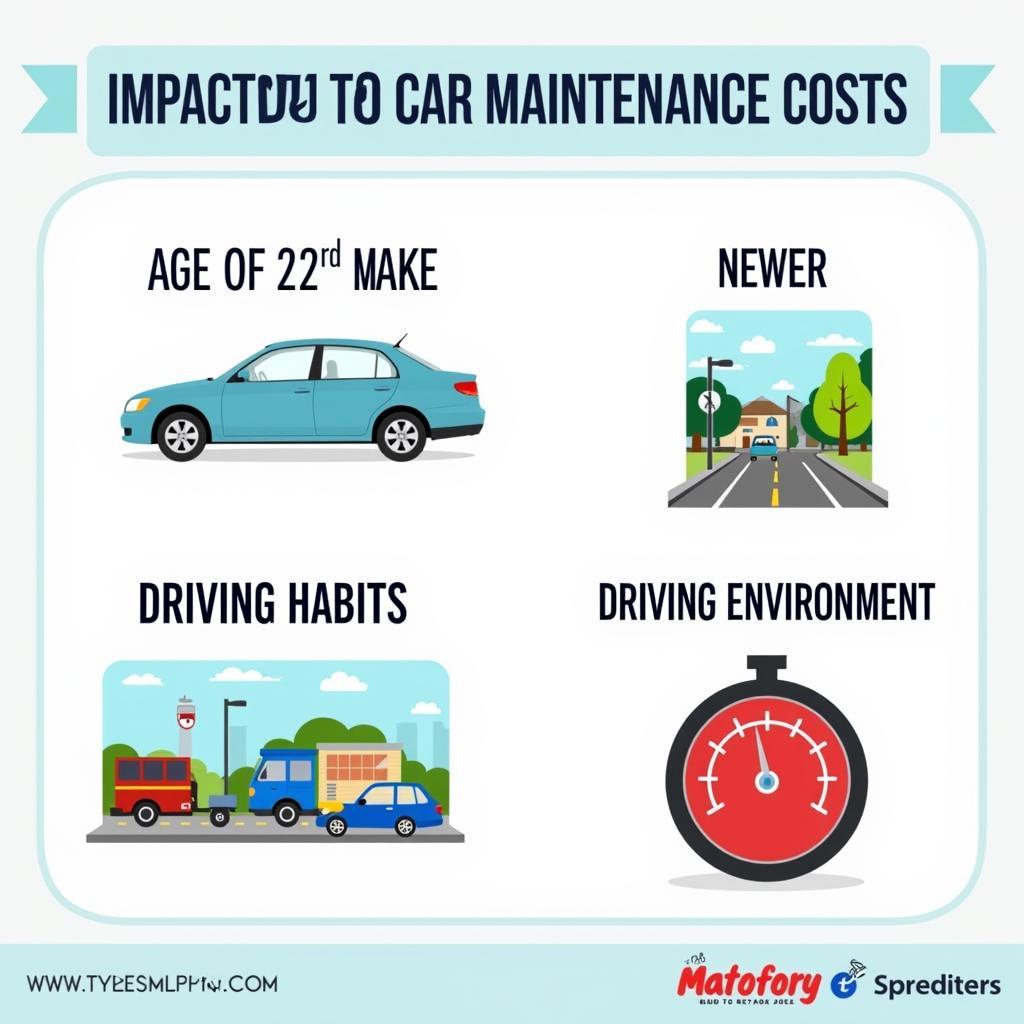Car Speaker Problems can be incredibly frustrating, turning your daily commute into an auditory nightmare. Whether you’re dealing with distorted sound, no sound at all, or intermittent issues, this guide will help you diagnose and fix the most common car speaker problems. We’ll cover everything from simple checks to more complex repairs, empowering you to restore your car’s audio system to its former glory.
Common Car Speaker Problems and Their Causes
Car speakers are subjected to a harsh environment, from extreme temperatures to vibrations and moisture. This can lead to a variety of issues. Let’s explore some of the most frequent culprits:
Blown Speakers: The Silent Treatment
A blown speaker is often characterized by a distorted, buzzing, or crackling sound, or no sound at all. This usually occurs when the speaker cone is damaged or the voice coil is burnt. Pushing your speakers too hard with excessive volume or a distorted signal from the amplifier can cause this.
Wiring Issues: Loose Connections and Short Circuits
Loose or corroded wiring can interrupt the signal flow to your speakers, resulting in intermittent sound or no sound at all. Short circuits, caused by damaged wires touching metal parts of the car, can also lead to speaker malfunction.
Amplifier Problems: The Powerhouse Malfunction
If your car has an external amplifier, problems with it can affect the sound quality or completely cut off the audio to your speakers. A faulty amplifier can cause distorted sound, low volume, or no sound at all.
Head Unit Issues: The Brain of the Operation
The head unit is the central control of your car’s audio system. If the head unit malfunctions, it can cause various problems, including no sound, distorted sound, or problems with specific speakers.
 Blown Car Speaker Diagnosis
Blown Car Speaker Diagnosis
Diagnosing Your Car Speaker Problems
Before diving into repairs, proper diagnosis is crucial. Here’s a step-by-step guide:
- Check the Balance and Fade: Ensure the balance and fade settings on your head unit are not accidentally set to exclude the affected speaker(s).
- Test the Speakers Individually: Use the head unit’s balance and fade controls to isolate each speaker and check if it’s producing sound.
- Inspect the Wiring: Visually examine the speaker wires for any signs of damage, loose connections, or corrosion. Pay close attention to the connections at the speaker terminals and the head unit.
- Test the Head Unit: Try playing a different audio source, such as a CD or a USB drive, to rule out issues with the radio tuner or Bluetooth connection.
- Check the Amplifier (if applicable): If your car has an external amplifier, check its power connections and ensure it’s turned on.
 Checking Car Speaker Wiring
Checking Car Speaker Wiring
Fixing Common Car Speaker Problems
Depending on the diagnosed issue, here are some solutions you can try:
Replacing Blown Speakers
Replacing a blown speaker is often the simplest solution. You can find replacement speakers online or at car audio stores. Make sure to choose speakers that are compatible with your car’s audio system.
Repairing or Replacing Wiring
If you find damaged or corroded wiring, you can try repairing it with electrical tape or soldering. However, replacing the entire wire is usually a better long-term solution.
Troubleshooting Amplifier Issues
If you suspect a problem with your amplifier, check its power connections and fuses. If the amplifier is still not working, you may need to have it repaired or replaced by a professional.
Addressing Head Unit Problems
If you believe the head unit is the culprit, try resetting it to factory settings. If that doesn’t resolve the issue, you may need to replace the head unit.
Conclusion
Car speaker problems can be annoying, but with a little troubleshooting, you can often pinpoint the cause and get your audio system back on track. By following this guide, you’ll be well-equipped to diagnose and fix common car speaker problems, ensuring your driving experience is accompanied by clear, high-quality sound. For professional assistance and expert advice, connect with AutoTipPro at +1 (641) 206-8880 or visit our office at 500 N St Mary’s St, San Antonio, TX 78205, United States. We’re here to help you enjoy your ride to the fullest!
FAQ
-
Why is only one of my car speakers not working? This could be due to a blown speaker, a wiring issue specific to that speaker, or a problem with the balance/fade settings.
-
How do I know if my car speakers are blown? Blown speakers typically produce a distorted, buzzing, or crackling sound, or no sound at all.
-
Can I fix a blown car speaker myself? While some minor repairs are possible, replacing the speaker is often the easiest and most effective solution.
-
Why are my car speakers crackling at high volume? This could indicate that your speakers are being pushed too hard, or there’s a problem with the amplifier or head unit.
-
How much does it cost to replace car speakers? The cost varies depending on the type and quality of the speakers, as well as the labor costs for installation.
-
How do I improve my car’s sound quality? Upgrading your speakers, adding an amplifier, or installing a subwoofer can significantly enhance your car’s audio performance.
-
Why are my car speakers cutting out intermittently? This often points to a loose connection in the wiring or a problem with the head unit.





Leave a Reply